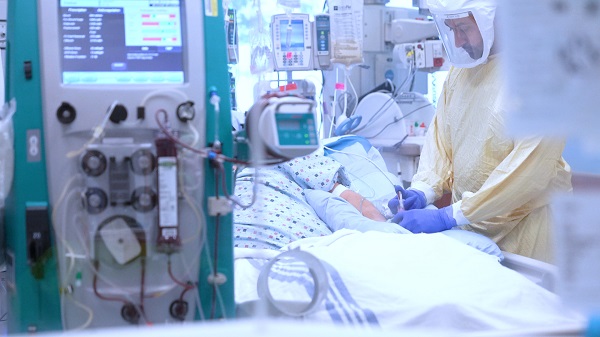A new study in The Lancet, co-authored by several Fraser Health clinicians and researchers, shows that higher doses of protein do not improve clinical outcomes of some critically-ill patients.
“The Effect of Higher Protein Dosing in Critically Ill Patients (the EFFORT Protein Trial)” tracked 1,301 nutritionally high-risk patients undergoing mechanical ventilation at 85 hospitals internationally including: Surrey Memorial Hospital, Burnaby General Hospital, Royal Columbian Hospital and Abbotsford Regional Hospital. Participants received high-dose protein or usual-dose protein within the recommended range of 1.2 to 2.2 grams of protein per kilogram of bodyweight per day.
Sixty days after patients were assigned to the groups, the incidence of alive hospital discharge was 46.1 per cent in the high-dose compared with 50.2 per cent in the usual dose protein group, and the mortality rate was 34·6 per cent in the high dose protein group compared with 32.1 per cent in the usual dose protein group. Researchers found higher protein appeared to be harmful in patients with acute kidney injury.
“The results will absolutely change clinical practice world-wide,” says Courtney Wedemire, study co-author and ICU dietitian at Abbotsford Regional Hospital. “There is this dogma that more protein is better and will improve patient outcomes. This study demonstrates that high dose protein doesn’t improve patient outcomes and may even be harmful to some patients.”
Wedemire says the critical care nutrition community has been eagerly awaiting the results of this trial to guide future practice and make recommendations for clinicians.
Abbotsford Regional Hospital was the top Canadian site and the six largest international site for patient recruitment, with 53 patients participating in the study. Researchers and clinicians at Abbotsford Regional Hospital are now participating in a supplemental study to examine the role of higher protein in a patient’s strength and functional status.


